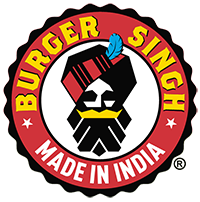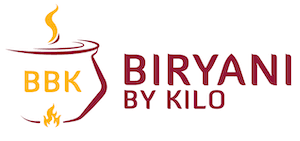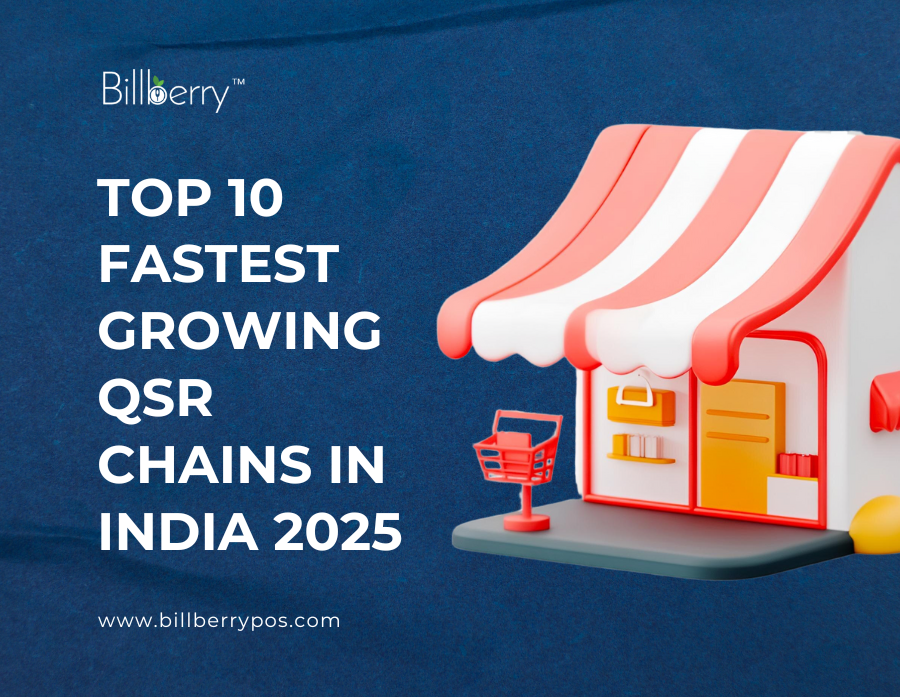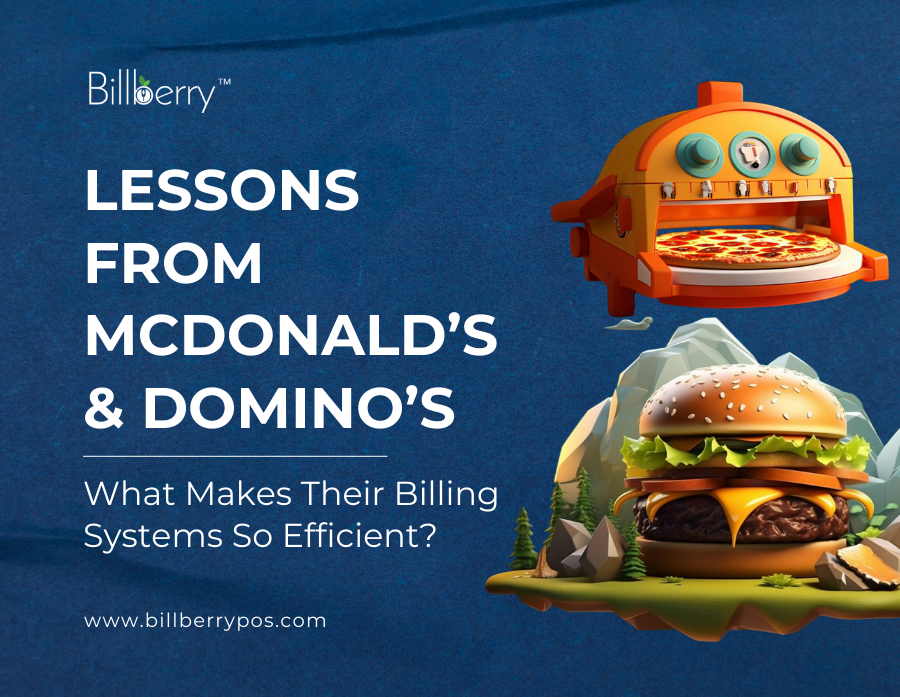Ravi, a young entrepreneur from Pune, had always dreamed of running a successful food business. Inspired by the rise of Quick Service Restaurants (QSRs) across India, he wanted to invest in a franchise that promised rapid growth and high returns. However, during his research, he noticed something interesting, the fastest-growing QSRs weren’t just about great food; they were powered by technology.
From bustling city streets to small-town food courts, Smart POS (Point-of-Sale) systems were revolutionizing the industry. These digital solutions weren’t just replacing traditional cash registers; they were speeding up operations, managing inventory in real-time, reducing billing errors, and improving customer experiences. It was no longer just about serving food, it was about serving it faster, smarter, and better.
As Ravi dived deeper, he uncovered a trend that the most successful QSR chains in India were leveraging Smart POS systems to scale rapidly. They weren’t just growing; they were setting new industry benchmarks.
Here’s a look at 10 of the fastest growing QSR chains in India that are riding the wave of technology-driven expansion.
1. Burger Singh: Indian Flavors with Technological Flair

Established in 2014, Burger Singh has rapidly expanded to over 175 outlets across 75 cities in India, along with international presence in the UK. The brand’s unique fusion of Indian spices with Western-style burgers has resonated with consumers, particularly in Tier 2 and Tier 3 cities. To manage its extensive operations efficiently, Burger Singh employs advanced POS systems that facilitate seamless order processing, inventory management, and data analytics. These systems enable real-time tracking of sales and stock levels, allowing for swift decision-making and reduced operational costs. The brand’s efficient operations and low-cost setup model make it an attractive franchise opportunity.
2. Wow! Momo: Innovating Traditional Delicacies

Founded in 2008, Wow! Momo has grown to over 650 outlets across 40 cities in India. The brand’s inventive approach to traditional momos, coupled with a multi-brand strategy that includes Wow! China and Wow! Chicken, has diversified its offerings. To support its rapid expansion and diverse menu, Wow! Momo utilizes integrated POS solutions that manage orders from multiple brands within a single system. This integration ensures efficient kitchen operations, accurate order fulfillment, and enhanced customer satisfaction. The company’s revenue from operations surged 87.7% to ₹413 crore in FY23, highlighting its strong growth trajectory.
3. Chai Point: Modernizing India’s Tea Culture

Since its inception in 2010, Chai Point has established approximately 200 outlets, primarily in urban centers. Capitalizing on India’s deep-rooted tea culture, Chai Point offers premium, freshly brewed chai and snacks. The brand’s innovative use of IoT-enabled dispensers and cloud-based POS systems allows for precise monitoring of sales, inventory, and customer preferences. This technological integration ensures consistent quality and quick service, catering to the fast-paced lifestyle of urban consumers. Chai Point maintained its trajectory with scale surpassing ₹200 crore in FY23, reinforcing its position in the competitive QSR market.
4. Biryani By Kilo: Tradition Meets Technology

Established in 2015, Biryani By Kilo operates over 150 outlets in India, specializing in freshly cooked biryani prepared in individual clay pots. To maintain the authenticity and quality of its offerings, the brand employs smart POS systems that integrate order processing with kitchen operations. These systems enable real-time tracking of cooking times and delivery logistics, ensuring that customers receive hot and fresh meals. The brand’s focus on authenticity and quality has contributed to its strong market presence and profitability.
5. Chai Sutta Bar: Blending Tradition with Modernity
Founded in 2016, Chai Sutta Bar has rapidly expanded to over 250 outlets across India and internationally. The brand offers a unique twist on traditional tea cafes, serving high-quality, affordable chai in clay cups (suttas), creating a nostalgic yet modern experience. To manage its widespread operations, Chai Sutta Bar utilizes smart POS systems that streamline transactions, monitor sales trends, and manage inventory efficiently. This technological integration supports the brand’s rapid expansion and ensures consistent service quality. The brand’s widespread appeal, combined with high footfall and strong social media presence, ensures solid returns for franchisees.
6. Ajay’s Cafe: Affordable Delights with Efficient Operations
Ajay’s Cafe is one of the fastest growing QSR chains in India, serving burgers, cold coffees, and other delectable snacks at over 178 outlets across 44 cities. The brand offers robust support to its franchisees, from site selection assistance to a comprehensive startup kit. To streamline operations, Ajay’s Cafe provides a robust POS system that allows franchisees to order raw materials online, ranging from buns, patties, ketchup, cold coffee ingredients, and other condiments manufactured at the brand’s own manufacturing plant. This integration ensures operational efficiency and consistency across all outlets.
7. KFC India: Global Brand with Local Adaptation
Devyani International, the operator of KFC and Pizza Hut in India, has reported significant growth due to the addition of hundreds of new stores. Despite a general consumption slowdown, Devyani’s revenue rose by 49% to ₹12.22 billion, slightly exceeding expectations. The company expanded its portfolio by signing franchising deals with Tealive, New York Fries, and Sanook Kitchen. To manage its extensive operations, Devyani International utilizes advanced POS systems that integrate various aspects of the business, from order processing to inventory management, ensuring efficient operations and consistent customer experiences.
8. Domino’s India: Delivering Excellence through Technology

Jubilant FoodWorks, the operator of Domino’s Pizza in India, has been focusing on expanding its store count and introducing more affordable menu items to cater to budget-conscious consumers. The company’s net profit dropped to ₹640.5 million for the quarter ending September 30, down from ₹972 million the previous year, yet still above analyst estimates. With inflation prompting budget-conscious spending, Domino’s introduced cheaper options like a four-course meal for ₹99 and expanded its store count, leading to a nearly 43% increase in revenue from operations to ₹19.55 billion.
9. One Bite: Customizable Fast Food Experience

One Bite is a rapidly expanding fast-food franchise in India, renowned for its diverse and customizable menu offerings, including pizzas, burgers, pastas, wraps, and beverages. With over 300 franchise outlets, One Bite’s efficient franchise model is supported by low investment costs and high brand recognition. The integration of smart POS systems enables seamless order customization, efficient inventory management, and real-time sales tracking, contributing to operational efficiency and customer satisfaction.
10. Kouzina: Revolutionizing Vegetarian Fast Food

Kouzina is making significant strides in India’s fastest growing QSR chains sector with its unique vegetarian menu. Focusing on healthy, quick, and affordable options, Kouzina offers an innovative approach to fast food, appealing to health-conscious consumers. The franchise’s cloud kitchen model, supported by smart POS systems, allows for efficient order processing, inventory management, and data analytics, facilitating scalability and consistent service quality. With a low investment requirement and a no-royalty fee model, Kouzina presents an attractive opportunity for aspiring entrepreneurs.
Tips for QSR Owners
If you’re like Ravi and want to build a scalable, successful QSR business, here are some key tips to make the most of Smart POS technology:
🔹 Choose a Cloud-Based POS – A cloud system ensures you can manage orders, track sales, and monitor inventory anytime, anywhere without being tied to a physical location.
🔹 Integrate with Online Ordering & Delivery Apps – Ensure your POS system syncs with Swiggy, Zomato, and other food aggregators to streamline online orders without manual effort.
🔹 Automate Inventory Management – Smart POS tracks stock levels in real-time, alerts you before ingredients run out, and prevents overstocking or wastage.
🔹 Optimize Your Menu with Sales Data – Use POS analytics to see which items are selling best and adjust pricing, combos, or promotions to maximize revenue.
🔹 Speed Up Service with Digital Payments – Accepting UPI, mobile wallets, and contactless payments reduces wait times and improves customer experience.
🔹 Implement Customer Loyalty Programs – A smart POS can track repeat customers and offer personalized discounts or rewards to increase retention.
🔹 Train Your Staff on POS Usage – A high-tech system is only useful if your team knows how to use it efficiently. Conduct regular training to ensure smooth operations.
By following these tech-driven strategies, you’re not just running a QSR, you’re building a brand that’s ready to scale, expand, and dominate the market.
Investing into the right Franchise Management Solution like BillBerry POS is equally important.
Embracing Technology: Ravi’s Key to Success
As Ravi continued his research, he realized that great food alone wasn’t enough to build a thriving QSR business. The secret ingredient behind the success of India’s fastest growing QSR chains wasn’t just their menu, it was their ability to operate smarter, faster, and more efficiently.
He imagined the challenges of running a busy outlet: long queues, delayed orders, inventory mismanagement, payment errors. But the franchises that were scaling rapidly had one thing in common, they had eliminated these problems with Smart POS technology.
This was Ravi’s turning point. If he wanted to compete with the big players and scale quickly, he needed a technology-first approach. A robust POS system wouldn’t just speed up billing, it would track sales, prevent stock shortages, optimize pricing, and even offer customer insights to personalize promotions.
With newfound clarity, Ravi made his decision. He would choose a QSR franchise that leveraged Smart POS technology, ensuring he wasn’t just opening a food outlet, he was building a future-ready, scalable business.
And just like that, his entrepreneurial journey was no longer just a dream. It was a well-planned roadmap to success, powered by technology and innovation.
Looking for a budget-friendly POS system for your bakery? Try Billberry POS – a cost-effective bakery management solution with all the essential features you need.










